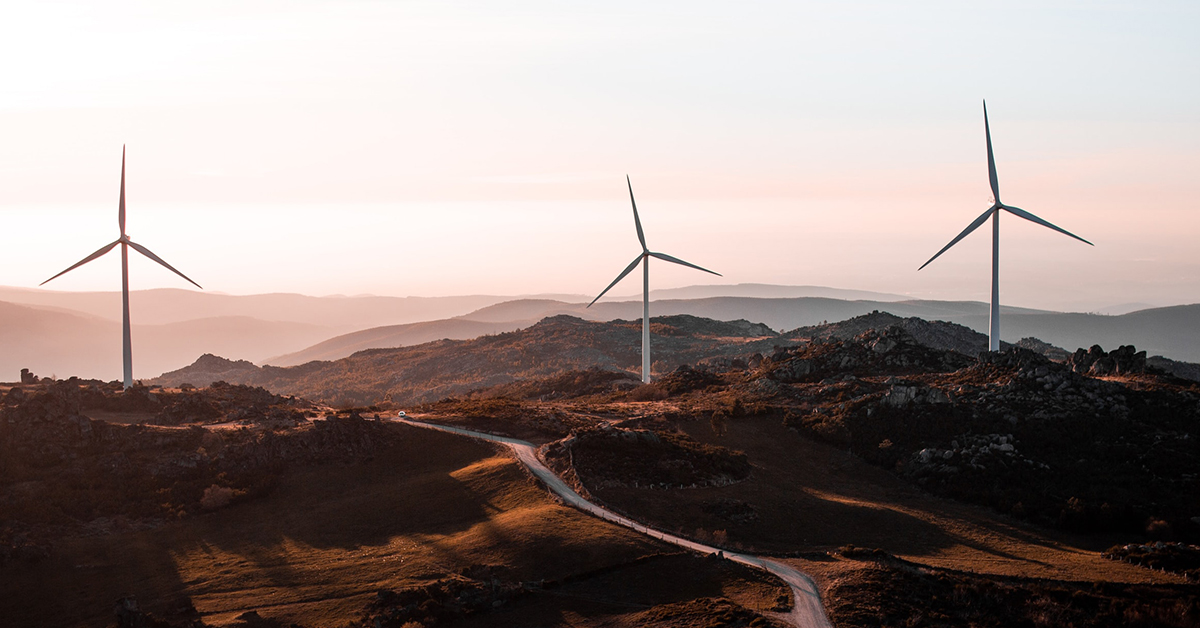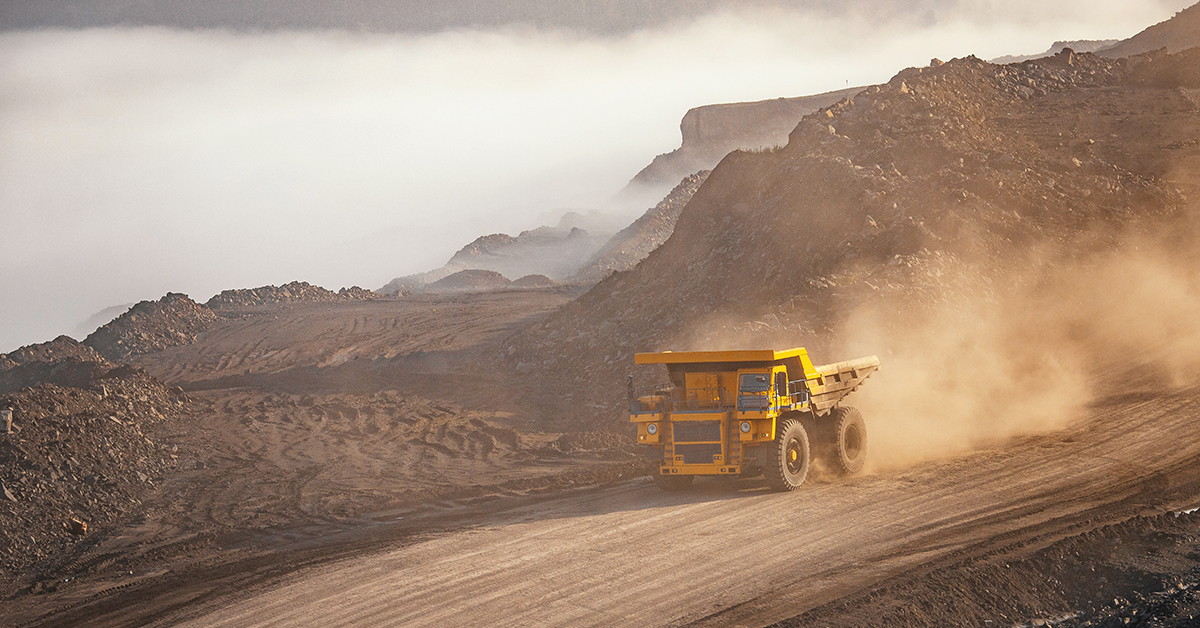While I was busy pulling together our recent research report on gold mining’s potential ability to decarbonise, I also participated in a number of online events and discussions with climate-conscious investors regarding gold’s credentials as a responsible and sustainable asset. Or perhaps I should rephrase that; I participated in a number of online events with climate-conscious investors during which I sought to introduce gold’s credentials as a responsible and sustainable asset into the discussion, to the surprise of most other participants.
For those of us in the gold market, such engagement offers us an important reality check; we need to face the simple fact that the vast majority of professional and institutional investors, when surveying the current ESG investment landscape, do not consider gold as an appropriate or relevant asset. And, historically, there may be rational reasons for that. Not only do many institutional investors regard gold as an opaque, volatile and ‘emotional’ asset, ill-suited to modern portfolio management, but lingering in their minds are often images of gold mining rooted in the colonial past or reflecting artisanal mining activities, where conditions are very far removed from those of modern corporate gold production. One advisor recently commented to me that most of her institutional investment contacts in Europe simply won’t look at the ‘extractives sector’ given its ‘problematic reputation’ and ‘negative environmental impacts’.
But it can be argued that, as things stand today, such positions might not only be a little blinkered and, in many regards, out-dated and inaccurate, but also a missed opportunity if those investors are interested in their funds being directed towards assets that will deliver a more stable, secure and sustainable future.
I won’t reiterate here my long-held position (backed by a chunky body of research1) that institutional investors could benefit from adopting a broader perspective on portfolio diversification and from looking more closely at gold’s ability to contribute to the optimal performance of portfolios. Also, it is not my intention to defend the whole mining sector, or to underestimate the challenges faced by the sector in its ongoing transformation to become cleaner, safer and more sensitive to all its stakeholders. But I do think it is important to remind investors and stakeholders that the sector will be absolutely vital in delivering the applications, technology and infrastructure needed to move towards a cleaner, safer world.
If, for example, we are to commit to Paris-aligned carbon reduction and climate targets, we will, as the World Bank has repeatedly reminded us (including via its Climate-Smart Mining initiative), inevitably need more mining, not less. Therefore, funding an efficient and accountable mining industry that is focused on delivering strategically vital materials is, it can be argued, absolutely pre-requisite to progress. Without it, the world cannot be confident it will be able to mitigate climate risks while also being able to achieve development goals.
Ah, but gold is far from a ‘vital material’, the argument then often goes. It mostly just sits in vaults doing nothing – it is, basically, useless. In such discussions and debates – and there have been many during my time at the WGC! – I have strived to point out that this is, at best, a very partial and largely 'Western' view that neglects gold’s historical and cultural significance and its role in the evolution of art, religion, medicine, trade, and money across different countries, civilisations and epochs. And gold still has meaning in the everyday lives of millions of people. Private individuals and families currently own more gold than banks and governments do2 and, for many, it remains the most secure and trusted means of safeguarding their wealth and savings. Not to mention the gold that helps wire the internet and keeps your smart phones and laptops working. Simply put, more people in more countries now own more gold for more reasons than at any other time in history.
But my aim here is not to revisit that argument. Rather, I wish to comment on another aspect of gold that is often missed by those that dismiss it prematurely or look at it from a very one-dimensional perspective – that is, I wish to point out that gold’s diverse functions and uses often have an even more diverse range of significant impacts, albeit many of them may be indirect and, therefore, overlooked.
This is true on many levels, including, for example, the role of gold mining as a catalyst for wider socio-economic development. While, historically, local gold mining may have emerged in ways that were (very!) far removed from the responsible business practices we expect today, it has clearly been a key factor in the eventual development of local vibrant economies and in triggering more extensive progress. The Australian gold rush of the 1850s, for example, led to rapid social change and economic growth. With an expanding population and an influx of educated workers, alongside rapid wealth creation from the gold sector, came a burst in the growth of schools, churches, learned societies, libraries and art galleries, and Australia’s first railway and telegraph. (This is not an isolated case – a similar story can be told of gold’s defining role in the shaping of modern California.)
More recently we have seen evidence that, in developing economies where gold mining’s contribution to national GDP has grown in a relatively substantial and sustainable manner, there is very often a concurrent improvement in wider income levels and indicators of social progress and wellbeing.3
What may seem to some a small industry, producing small volumes of yellow metal, can catalyse substantial wider changes and, ultimately, have major development impacts.
More recently, this aspect of gold has proved true in an entirely different way, as gold has emerged as a key component in the advancement of technological innovations based on nanotechnology. The miniscule amounts of gold used in nano-based applications may not excite gold dealers, as these uses are unlikely to represent a substantial source of new demand in volume terms. But gold market players may view these applications with far greater enthusiasm when they consider how gold’s role, in enabling these new technologies, has the potential power to deliver transformative solutions to improve the lives of a great many people. This has already been proven in some of gold’s medical and diagnostic uses but is also true of gold’s potential role in supporting decarbonising technologies to support climate risk mitigation. For example, one application currently being explored (as touched upon in our 2018 ‘Gold and climate change: an introduction’ report) is gold’s potential use as an efficient catalyst in ‘CO2 conversion’ – potentially transforming CO2 into a useful synthetic fuel.
When considering gold’s role in potentially driving such innovative technologies, it is only fair that I also acknowledge that its high value can often discourage its wider use as an input in the commercial development of such technologies. But this should not detract from the simple fact that gold is often the best material for some of these technologies and, because of this, is often vital in enabling their early development and establishing their efficacy.
Given the relatively small volumes of gold, and the potential size of the prize, it would therefore be a pity - and possibly another major missed opportunity! - if scientists and research institutions were dissuaded from utilising gold by its price and therefore failed to fully explore its potential, at least as an ‘enabling’ material in early-stage innovation. Indeed, this might be another area that investors examine more closely if they are considering their support for solutions to enhance our efforts to decarbonise the economy. Certainly, it is at least another reminder that gold is not simply a shiny metal that just sits in a vault!
And, while the relative high value of a material like gold might deter its commercial deployment at scale, there are other cases when gold’s value acts as an ‘enabler’ of market development and wider positive impacts. A good example of this is that the sustained value of gold and its long-term growth trajectory has facilitated the recycling of other metals from electronic goods (e-waste). The small amounts of gold that can be profitably recovered from mobile phones, laptops and such has consequently enabled the recovery of other metals from electronics, expanding the scope of this segment of the circular economy. In this instance, a vibrant market and a buoyant price was needed to allow gold to stimulate and support adjacent activities with wider beneficial impacts.
As I’ve been writing this, further examples of the potential indirect beneficial impacts of an evolving and increasingly climate-smart gold industry have come to mind. But I shall save them for now, to perhaps surprise the next set of investors I encounter who are unfamiliar with gold’s credentials as a responsible and sustainable asset – there are still a fair few out there!
Footnotes
1 Including the WGC’s own research on gold as a strategic portfolio asset – see, for example, www.gold.org/goldhub/research/relevance-of-gold-as-a-strategic-asset-2020
2 Above-ground gold stocks (2019): Jewellery - 47.0%; Private investment - 21.6%; Official sector holdings - 17.2%
3 For more, see www.gold.org/download/file/8371/the-social-and-economic-impacts-of-gold-mining.pdf and, more broadly, www.gold.org/about-gold/gold-supply/responsible-gold/gold-minings-contributions-sdgs


